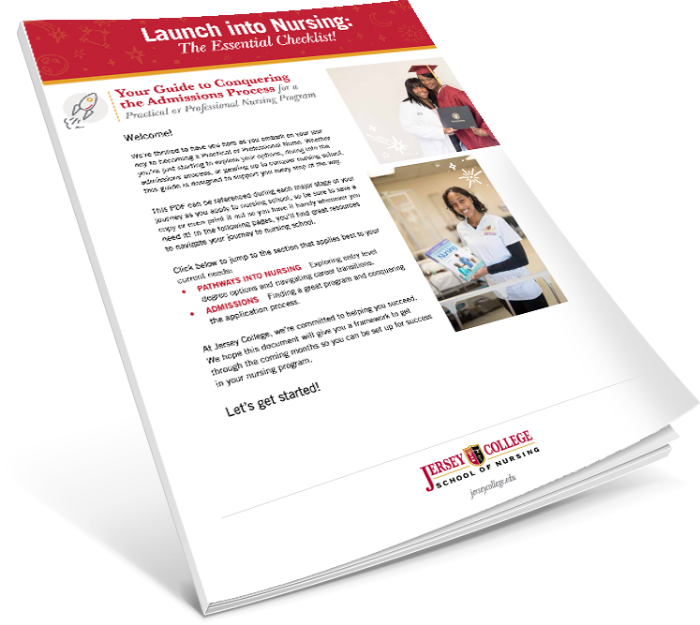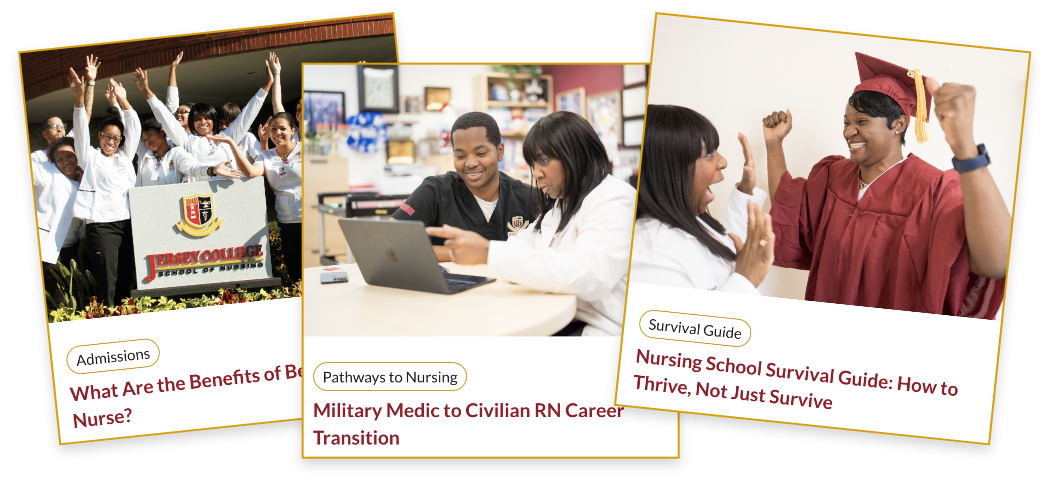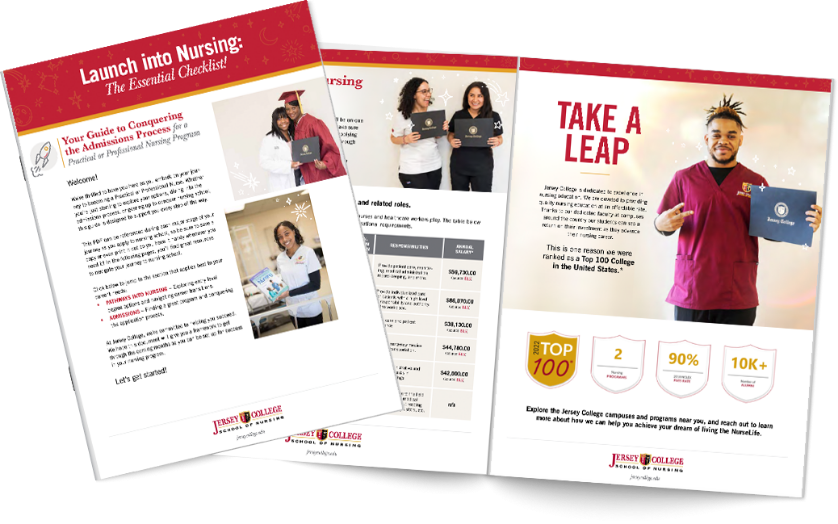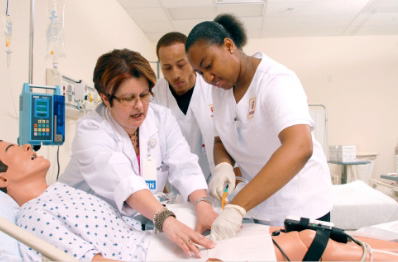
What Are the Fastest Ways to Become a Nurse?
Become a Licensed Practical Nurse (LPN)
On average, LPN programs can be completed in as little as 12 to 18 months, but may take longer. These programs focus on the essential knowledge and skills needed to excel as an LPN, helping you receive a comprehensive education. The curriculum covers fundamental nursing concepts, patient care techniques, medication administration, and clinical experience in healthcare settings.
As an aspiring LPN, you'll have the opportunity to make a meaningful impact on the lives of patients, providing them with quality care and support during their healthcare journey. With a focused curriculum and streamlined education, you can get set on the right path toward becoming an LPN.
Program length is subject to change and is determined based on a number of factors, including, but not limited to: (i) pace of completion, (ii) quantity of credits taken per term, (iii) repeats of coursework, and (iv) leaves.
- What Does an LPN Do?
Licensed Practical Nurses (LPNs) participate in many different important elements of the health care system, assisting with immediate tasks alongside supervision from doctors or Registers Nurses (RN). LPNs are highly skilled professionals who are trained to deliver compassionate and competent care to patients in various healthcare settings.
LPNs are responsible for a range of critical tasks, including monitoring patients' vital signs, administering medications, dressing wounds, assisting with personal hygiene, and collecting samples for testing. They work closely with other health care providers to ensure the comfort and well-being of patients, while also providing valuable support to registered nurses and other medical professionals.
- Salary Growth and Career Advancements of LPNs
The average (mean) annual salary for LPNs was roughly $64,150 as of 2024, as cited by the U.S. Bureau of Labor Statistics (BLS). The actual salary will vary by region and specific details such as experience and relevant skills.
Job growth is at roughly the national average at 3%, also according to BLS data, although in recent years it has been as high as 9 or 10% and is generally increasing in overall outlook.
Learn more about how to become an LPN and the different career paths you may pursue with this program. Consider reading through our comprehensive Nursing Salary Guide for more details.

FREE Essential Guide to Nursing School: Get Accepted, Survive, and Thrive!
Get Your Associate Degree in Nursing (ADN) and Become an RN
If your goal is to become a Registered Nurse (RN), pursuing an Associate Degree in Nursing (ADN) can be the fastest option compared to a traditional Bachelor of Science in Nursing (BSN) program.
An ADN program typically takes 2 to 3 years, although that specific timeline will be different based on lifestyle constraints and specific actions to ensure the appropriate schedule for you. The curriculum encompasses many different scientific disciplines and detailed instruction, taught through a combination of classroom lectures, laboratory sessions, and supervised clinical rotations.
An ADN program can provide you with the resources and experience necessary to enter the field of nursing as a qualified and competent RN.
Program length is subject to change and is determined based on a number of factors, including, but not limited to: (i) pace of completion, (ii) quantity of credits taken per term, (iii) repeats of coursework, and (iv) leaves.
- What Does an RN Do?
Whereas an LPN is more focused on the tasks associated with nursing, RNs often have a slightly higher-level approach. RNs are responsible for meeting with the patient and assessing medical status and needs, collaborating with the larger medical team to develop a treatment plan. They will be the ones educating the patient along the way, communicating any important information and eventually determining a personal medical-management plan when the patient is ready to leave the hospital. With that said, RNs are also responsible for tasks such as drawing blood, providing treatment and medication, and dressing wounds.
- Salary Growth and Career Advancements of RNs
The salary and relative job stability for registered nurses are high compared to many other job sectors. In reference to data from the U.S. Bureau of Labor Statistics (BLS), the average (mean) annual salary for Registered Nurses (RN) was $98,430 as of 2024.
Additionally, the job growth for RNs is projected to be at or above the national average over the next ten years. The BLS estimates a 5% employment growth rate for RNs from 2024 to 2034, which is faster than the average for all occupations.
Be sure to read our How to Become an RN article for more information, or explore our RN programs.
If you would like to learn more about these different academic nursing programs, read our guide comparing the RN and LPN programs. Consider reading through our comprehensive Nursing Salary Guide for more details.

Sign up to get new articles in your inbox and stay updated on our nursing programs.
Tips for Completing Your Nursing Program Quickly
While the RN and LPN programs are designed to fit your schedule, there are tips you can apply to move the process forward.
- Look into Accelerated Programs: While there is a more concentrated workload, accelerated programs are designed to streamline the academic process toward graduation. Additionally, there are unique bridge programs such as the LPN to RN Bridge, in which a current LPN can achieve a degree that will grant them a license as a practicing LPN.
- Take Summer Classes: Jersey College offers academic terms year-round, and so students looking to accelerate the process should schedule classes for the summer term in addition to spring and winter. Browse our Academic Calendar to learn more about the different academic terms available.
- Take Evening Classes: If you are looking to schedule your classes around your lifestyle, or to fit another class into your semester, then look into the Evening Programs available at Jersey College. There are evening schedules for both LPN and RN programs.
- Set up a Healthy Work/Life Balance: While many of these tips will help you accelerate the process, it is important to continually reflect on the balance between your work, your academic pursuits and your personal life. An accelerated nursing program requires a significant amount of time and energy, and so it is very important to achieve a healthy balance between all of the different aspects of your life.
Are Your Ready to Jump into Your Nursing Career?
A nursing career can be incredibly fulfilling and has a high degree of job stability and satisfaction. At Jersey College, there are many different academic program options to obtain various licenses and join the field of nursing.
If you are interested in learning more about what Jersey College has to offer, reach out to any of our campuses and find out if we are the right option for your goals.
Find Your Campus
Based on the success of our programs, we have grown to serve communities in 7 states (and counting!). Find a campus near you to start your NurseLife.

FREE Essential Guide to Nursing School: Get Accepted, Survive, and Thrive!

